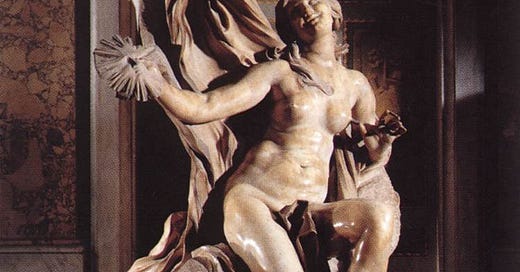Literature is written at odd hours, before one wakes up, while one is still dreaming. It cannot be fitted into any mechanical, horological schedule, it doesn’t allow itself to be confined into an Outlook appointment, brought about at will like office chatter. It transpires in a more ancient dimension, it follows more enchanted rhythms: those of the moon and the stars. Literature presupposes a familiarity with constellations, with silvery reflections, and a sensitivity to light pollution (has any literature ever been written in Las Vegas?). Our stark, enlightened societies, corrupted by pop-Freudian claims of wish fulfilment, still have prizes for us lucid dreamers, palms and laurels to give to our irregular activities, our stray hours spent in bed, contemplating at an oneiric pace, suffering from some malady. Illness and literature are great bedfellows. From Kafka to Daniel Charles Barker, Nick Land’s invention, standing upright has been credited with all manner of moral problems, with spinal catastrophism and animal cruelty. Lying down is at once the acme and the undoing of our civilisation. Poorly and pensive are we, the edge cases, the most uplifting, and the most damning of the well-illuminated life.
I say ‘we’, I say ‘our’, but that isn’t quite right. I’m a halfway house, an architectural pastiche like the ones I used to dream up after my visits to Rome, Seville, Florence, after a summer reading Vitruvius, browsing Pevsner. I waver between a vita activa and vita contemplativa, not to mention a vita voluptatis – work, thought and lust, perhaps in equal measure. I live on slothful time which considers any plans an unbearable intrusion one’s on freedom, which holds desire as law; I live on horological time, the time of calendar appointments, of ‘workaholics’, the precondition for complex and coordinated activity, of Pomodoro timers and to-do lists; I live on literary time, moments of creativity, non-economic opportunities which have to be seized with utmost zeal, which demands the setting aside of plans, the suppression of temptation. Let no thought pass incognito, and keep your notebook as strictly as the authorities keep their tax-records.
Compromise is essential. There’s no literature worth reading that didn’t require some sacrifice of those other modalities of life. But perhaps we should heed Nietzsche’s call for us to become more Mediterranean, to step away from our desks and allow for spontaneity, for seizing and squeezing the potential from opportune moments, work smarter rather than harder, and avoid excesses, like a good Epicurean, yet make allowance for potlatch, for Bacchanalia, symposia, all the ancient festivals of immoderation? All decisive blows are struck left-handed.
The literary form most suited to such gay living writing thinking, as against Socratic endurance and endless questioning, unlike Faustian scholarly frustration, is not the aphorism, with its perfect juxtapositions, its highfalutin finality, nor the fragment, with its implication of a lost whole, but the diary, open-ended and at-hand, progressive rather than summative. Imagine the diary as a literary form in its own right, rather than as part of a Nachlass, a way for publishers to capitalise on an author’s death. Imagine loving its temporary forms, the variety of its occasions, its absence of plans and deadlines. Contrast it with journalism, with Johnsonian ‘periodic writing’, the intimacy of its voice. Consider its deferrals, procrastination as its modus operandi, its lack of distinction between work and notes for work. The further I’ve gone in ordering my life according to productive principles, the more my attention has been drawn to the vertices, the vanishing points, the obscure joints where woe and joy and personality accumulate in the course of an ordinary hour, a month, a year.





consistently floored by your rhythm and precision
This is two cuts shy of a manifesto. I’ll stay tuned.